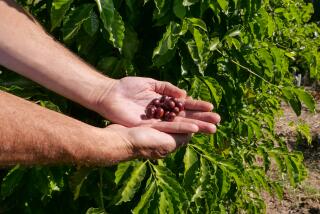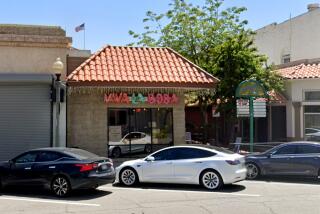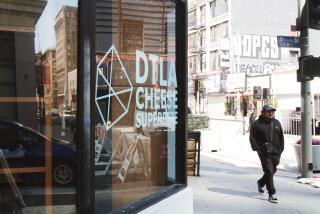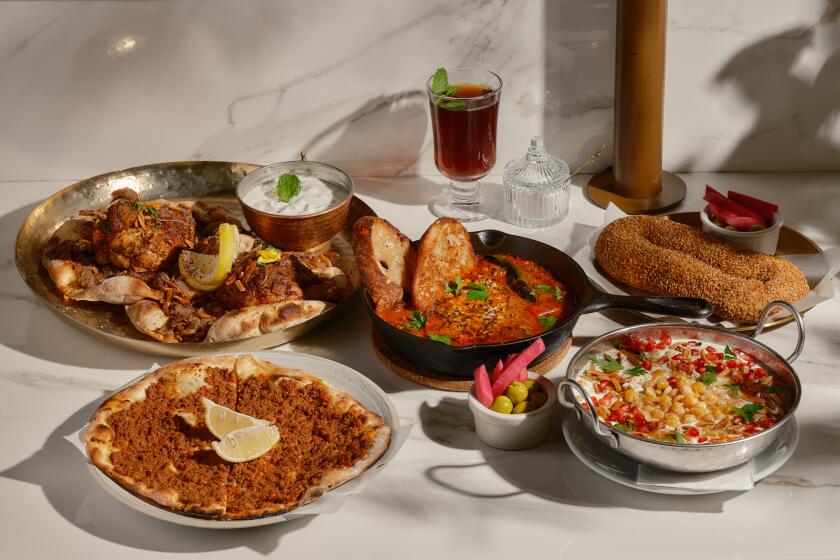Lollicup, the huge bubble tea company, has a boba school. Who knew?
When it opened in 2000, Lollicup, which began life as a single tea shop in the San Gabriel Valley, was one of the only boba shops in the United States. Then came the boba craze, during which the company expanded like, well, bubble tea. Today the company distributes 70% of all the boba in the U.S. and has nine shops in the greater Los Angeles area.
Last year, Lollicup upgraded to a 300,000-square-foot facility in Chino. Staffed with 175 employees, the company has a full manufacturing operation for disposable dining ware and a commercial kitchen used for training sessions.
“We call it boba school,” said Alan Yu, Lollicup’s cofounder.
The head of boba school is Summer Dardeen, who was a manager at a local coffee shop before transitioning to boba teas.
“I grew up in Temecula Valley and didn’t know what boba was until I applied for this job,” Dardeen said. Today, Dardeen is the company’s head barista and is in charge of training sessions for the company’s clients across the country. “We teach folks how to cook the boba, how to use the equipment, and create different flavor combinations. We have people coming in from New Mexico and Texas,” she said.
(Sadly, the school is only for Lollicup clients, usually for new boba store owners. Classes range from three hours to three days.)
Over 14 years, the company has coached over 5,000 clients across the world in the art of boba teas. Their catalogue has also expanded to tea leaves, drink powders, jellies, syrups, sweeteners, frozen yogurt toppings and even the ingredients need to produce Taiwanese shaved snow.
“We’re selling over 20 million servings of boba each year,” Yu said. “And 220,000 cases of popping boba.” Popping boba is the instant version of regular boba; they’re neon pearls that pop fruit juice when you bite into them. The appeal? Unlike for traditional boba — which is cooked for 30 minutes in boiling water before being soaked in honey water and dropped into tea — no cooking is required.
Despite the success of their edible products, the company is now also focusing on producing disposable ware (under their subsidiary company Karat), including personalized plastic and paper cups that they sell to companys such as El Pollo Loco, Coca-Cola and Coffee Bean and Tea Leaf.
“We used to import all of this from Asia,” Kaori Imamura, the company’s marketing manager said. “But the ports were getting busy and we started buying our own machines.”
Back at boba school, Dardeen has whipped up three boba drinks: a Thai milk tea, an Oreo milk tea, and a sea-salt caramel green milk tea. On the counter are a dozen more concoctions made earlier in the day by students.
“We have an entire research and development team that comes up with these flavors,” Dardeen said.
Yes, you can call them boba scientists.
More to Read
Eat your way across L.A.
Get our weekly Tasting Notes newsletter for reviews, news and more.
You may occasionally receive promotional content from the Los Angeles Times.






